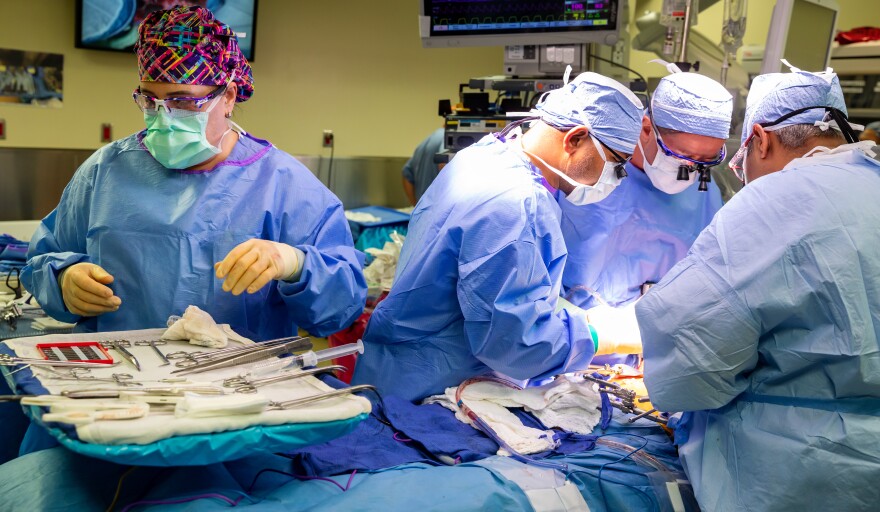A mother and son are making history at Tampa General Hospital.
Patricia and Derek Sanz took part in the hospital’s first living donor liver transplant earlier this month, according to a news release. Derek donated a portion of his liver to his mom, who had been fighting liver disease for two years.
“When he decided he wanted to be my living donor, it was a really hard choice for me because he's my youngest son,” Patricia said in a news conference after the transplant. “But he never wavered. And I'm so grateful.”
The surgery is the first of its kind on Florida’s west coast. According to the release, a healthy person will donate part of their liver to a patient with a poorly functioning liver. The rest of the donor’s liver will regrow close to its full size and capacity a few months after surgery.
“A living donor is definitely a better organ than a diseased donor organ because they are young, healthy and we can optimize the recipient at the time of transplant,” Dr. Ashish Singhal, director of Living Donor Liver Transplant, said in the conference.
The release said the surgery will expand access to liver transplants for patients with end-stage liver disease and liver cancer.
“Living donor liver transplant is another avenue to save more lives of patients with liver disease in our community,” Dr. Kiran Dhanireddy, vice president and chief of the TGH Transplant Institute, said in the release.

Living donor liver transplants can also cut the waiting time for a recipient to get a transplant. As of May 23, 2023, 10,351 people in the U.S. were on the waiting list for a liver transplant, according to the Organ Procurement and Transplantation Network. There were 393 candidates waiting for a liver transplant in Florida as of May 22.
“The profound generosity of living donors circumvents the need for extended periods of time to gain access to lifesaving transplantation,” Dhanireddy said in the release.
During the conference, Dhanireddy said the surgery helped Patricia and Derek avoid suffering.
“The way I think about measuring the success of this is that we prevented Patty from having to go to the ICU and being on continuous dialysis and on medications to support her blood pressure and never had to suffer the risk of potentially dying before getting a transplant,” Dhanireddy said.
Patricia said she was grateful for her son and team of doctors.
“Going forward, I will protect this liver. And I'm going to live my life to the fullest, which I haven't been able to do,” she said in the conference.
She also hopes her experience can impact others waiting for a liver transplant.
“We're hoping that by telling our story, people will realize they don't have to be on a list maybe for two or three or more years. If they just know about it, and they can have family members tested, that they may be able to go right to the top of the list,” Patricia Sanz said.




